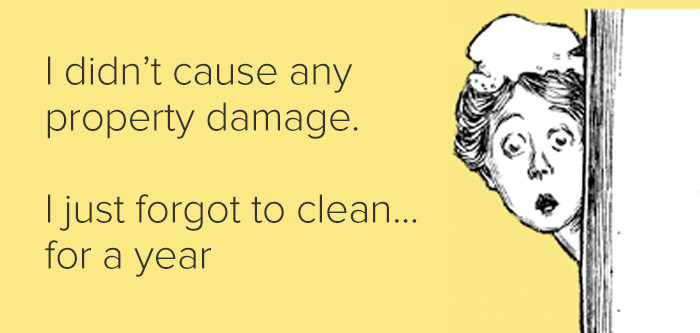
- Average Rent
- Advice
- Forum
- +Sign Up


It's every landlord's nightmare - your tenant moves out and you find they have caused damage to your property through neglect, abuse, hoarding, or just plain bad housekeeping. What can you do? Can you prevent this from happening?
Property Inspections
Before the tenant moves in, inspect the property, and take pictures. Document the date of the inspection and photos. You can do this yourself, or with software for that purpose.
You are documenting the condition of the property when the tenant moves in. When the tenant receives the documentation and signs off on it, or when the inspection is done with the tenant present, this further protect you.
There should also be an inspection after the tenant moves out. Again, document the condition of walls, floors, cleanliness. Photograph and document all damage.
You can charge expenses to repair damage or cleaning fees against the tenant's security deposit. You can also bill them for certain fees.
But what happens when you have the tenant from hell and they leave ahead of the end of their lease with no warning, having trashed the place?
Again, you can apply their security deposit to the costs of damages. If you know where they are, or where their cosigner is, you may be able to bill them or take them to small claims court. If there is major damage to the structure, you may need to sue them. Contact an attorney for your best options.
How do you prevent damages from getting out of hand before the tenant moves?
Keeping an eye on the property is important. You cannot just barge in, but if you have a reason to drive by, or come in for routine maintenance, that is a good time to look for any telltale signs of trouble. You might see uncollected trash piling up in the yard, multiple vehicles parked outside when there are only supposed to be one or two cars, or signs of structural damage. This gives you an opportunity to contact the tenant and tell them what is not acceptable. It may be as simple as setting up garbage collection, or as complicated as finding that they are taking on additional roommates or subletting rooms.
Sometimes a landlord or property manager might have access to the property to perform routine maintenance - landscaping, changing a filter on an HVAC unit, accompanying pest control. Give the tenant warning in writing that this will happen at specific days or times, giving them an opportunity to restrain pets, and put away personal items.
Maintaining regular, friendly communication with your tenants is a good way to nip any problems in the bud. Also, screening them before renting, checking references from prior landlords, employment, and personal references will tell you a lot.
Login or create and account to comment on this article Sign Up